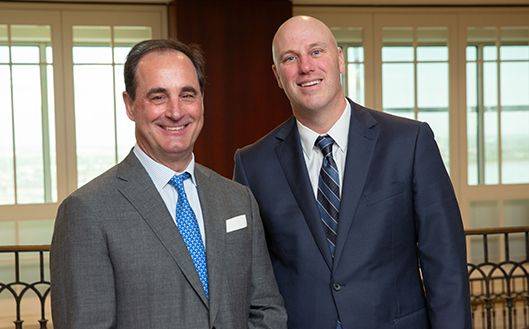Arbitration Exemptions Could Extend to More Employees in New Supreme Court Case
This alert was originally published by Phelps on Oct. 5, 2023 and was expanded for additional publication by Birmingham Medical News.
The Supreme Court announced on Sept. 29 it will consider Bissonnette v. LePage Bakeries Park St., LLC, a case out of the United States Court of Appeals for the Second Circuit. Bissonette asks whether the Federal Arbitration Act’s exemption for employment contracts of workers engaged in foreign or interstate commerce applies to any worker who is “actively engaged” in the interstate transportation of goods.
Generally, an employer and employee can agree to arbitrate employment claims. The FAA, however, exempts from arbitration “contracts of employment of seamen, railroad employees or any other class of workers engaged in foreign or interstate commerce . . . .”
In June 2022, the Supreme Court extended this exemption through its decision in Southwest Airlines Co. v. Saxon, holding the exemption applied to an airport ramp agent supervisor who trained and supervised ramp agents responsible for loading and unloading airplane cargo. The supervisor frequently helped load and unload cargo alongside the agents, and the Court found the supervisor was directly involved in transporting goods in interstate commerce such that she fell within the meaning of “other class of workers” covered by the exemption, even though neither she nor the ramp agents she supervised crossed state lines.
Bissonnette involves two workers who resell and deliver Dave’s Killer Bread, along with other breads and cakes, traveling through interstate commerce. The workers contracted with the bakery to resell and deliver the breads and cakes, and the contracts required arbitration of all disputes.
The workers sued the bakery, claiming it misclassified them as independent contractors and thus denied them protections owed to employees such as minimum wage and overtime. The bakery successfully compelled arbitration over the workers’ objection that their claims were exempt from the FAA because they handled goods traveling in interstate commerce, similar to the supervisor in Saxon. The workers appealed, and the Second Circuit held the exemption only applies to workers in the transportation industry. The workers asked the Supreme Court to review, and their request was granted on Sept 29.
The Supreme Court’s decision to review the Second Circuit’s ruling in Bissonnette signals the FAA’s exemption, already extended through Saxon, could be extended further. The core question will be how narrowly or broadly the Supreme Court will interpret the meaning of “other class of workers” as used in the exemption. Does the exemption depend on the particular industry in which an employer operates or only on the type of work the particular employee performs?
With the prevalence of arbitration provisions in employment agreements nationwide, the Supreme Court’s answer to these questions could have far-reaching impacts given how broadly courts interpret the concept of interstate commerce. Employers should keep an eye on Bissonnette going forward.
Please contact Nick Morisani or any member of Phelps’ Labor and Employment team with questions or for advice and guidance.



